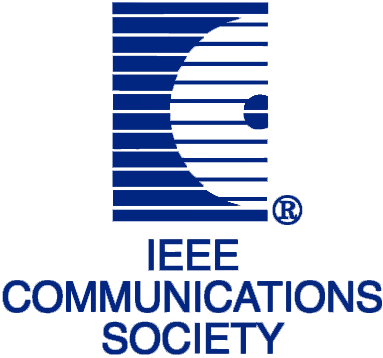Plenary Speakers
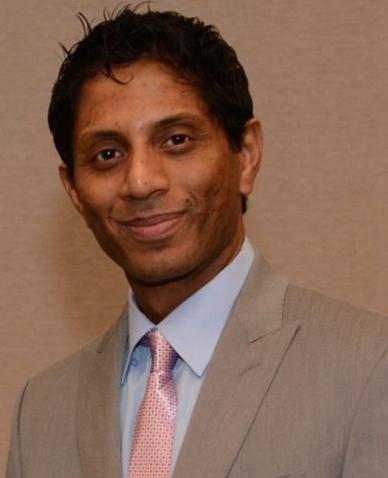 Prof. Shrikanth (Shri) Narayanan University of Southern California, USA |
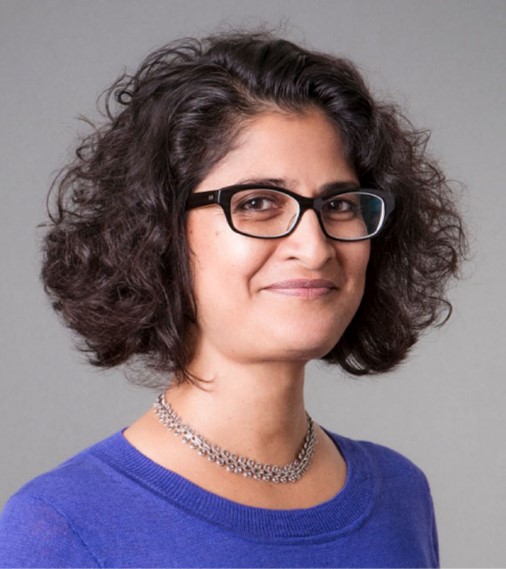
Prof. Urbashi Mitra University of Southern California, USA |

Prof. Ian F. Akyildiz TRUVA, Inc, USA |

Prof. Vivek S. Borkar IIT Bombay, India |
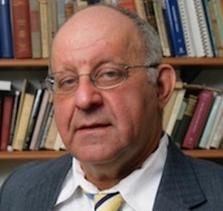
Prof. Shlomo Shamai (Shitz) Technion, Israel |
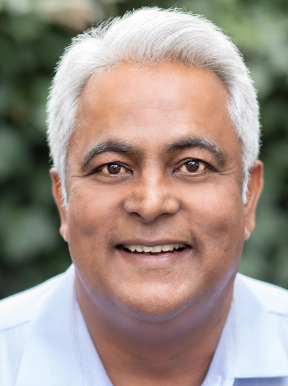
Prof. Balaji Prabhakar Stanford University, USA |
P1: Human-centered Multimodal Behavioral Machine Intelligence
P2: Active Hypothesis Testing for Fast Decision Making with applications to SARS-CoV-2 testing
P3: TeraHertz Band Communication: An Old Problem Revisited for 6G Wireless Systems
P4: Kab Q aur kahaan? (Variations on a theme of Watkins)
P5: The Information Bottleneck: A Unified Information Theoretic View
P6: Timeliness: A New Paradigm for Distributed Computing and Networking
|
P1: Human-centered Multimodal Behavioral Machine Intelligence By Prof. Shrikanth (Shri) Narayanan Date & Time: 28th July 2021 (0800-0900 hours) |
|||||
| TOP | |||||
|
ABSTRACT: The convergence of sensing, communication and computing technologies offers tremendous opportunities for continuous information-rich yet unobtrusive multimodal, spatiotemporal characterization of an individual's behavior and state, and of the environment within which they operate. This in turn is enabling hitherto unimagined possibilities for understanding and supporting various aspects of human functioning from health and well-being to job performance. Recent computational approaches that have leveraged judicious use of both data and knowledge have yielded significant advances in this regard, for example in deriving rich, context-aware information from multimodal signal sources including human speech, language, and videos of behavior. These have been complemented and integrated with data about human brain and body physiology. This talk will focus on some of the advances, opportunities and challenges in gathering such data and creating algorithms for machine processing of such cues. It will highlight some of our ongoing efforts in Behavioral Signal Processing (BSP)-technology and algorithms for quantitatively and objectively understanding typical, atypical and distressed human behavior-with a specific focus on communicative, affective and social behavior. The talk will illustrate behavioral machine intelligence applications that contribute to quantifying higher-level, often subjectively described, human behavior in a domain-sensitive fashion. Examples will be drawn from health and wellbeing realms such as Autism Spectrum Disorder, Couple therapy, Depression, Suicidality, Addiction counseling and work place behavior. SPEAKER: |
|||||

|
Prof. Shrikanth (Shri) Narayanan is University Professor and Niki & C. L. Max Nikias Chair in Engineering at the University of Southern California, where he is Professor of Electrical & Computer Engineering, Computer Science, Linguistics, Psychology, Neuroscience, Pediatrics, and Otolaryngology-Head & Neck Surgery, Director of the Ming Hsieh Institute and Research Director of the Information Sciences Institute. Prior to USC he was with AT&T Bell Labs and AT&T Research. His research focuses on human-centered information processing and communication technologies. He is a Fellow of the National Academy of Inventors, the Acoustical Society of America, IEEE, ISCA, the American Association for the Advancement of Science (AAAS), the Association for Psychological Science, and the American Institute for Medical and Biological Engineering (AIMBE). He is a recipient of several honors including the 2015 Engineers Council's Distinguished Educator Award, a Mellon award for mentoring excellence, the 2005 and 2009 Best Journal Paper awards from the IEEE Signal Processing Society and serving as its Distinguished Lecturer for 2010-11, a 2018 ISCA CSL Best Journal Paper award, and serving as an ISCA Distinguished Lecturer for 2015-16, Willard R. Zemlin Memorial Lecturer for ASHA in 2017, and the Ten Year Technical Impact Award in 2014 and the Sustained Accomplishment Award in 2020 from ACM ICMI. He has published over 900 papers and has been granted seventeen U.S. patents. His research and inventions have led to technology commercialization including through startups he co-founded: Behavioral Signals Technologies focused on the telecommunication services and AI based conversational assistance industry and Lyssn focused on mental health care delivery, treatment and quality assurance. | ||||
|
P2: Active Hypothesis Testing for Fast Decision Making with applications to SARS-CoV-2 testing By Prof. Urbashi Mitra Date & Time: 28th July 2021 (0900-1000 hours) Indian Standard Time |
|||||
| TOP | |||||
|
ABSTRACT: Many modern (machine) learning strategies depend on the intelligent acquisition of informative samples. Such sampling methods can be viewed as an instantiation of the exploration-exploitation problem. Initially, one is unclear about the state of the environment and the goal is to take observations that refine the understanding of the state. If one has a series of "experiments" (or queries), each of which provide information about the state, an important question is how to design that sequence of experiments to enable a decision about the environmental state as quickly as possible. Exploration-exploitation problems abound in applications such as anomaly detection, target localization, dynamical system tracking, medical diagnosis, wireless body area sensor networks etc. The problem of experiment design for classification (hypothesis testing) has been persistently studied since the 1940s. Then and now, there has been an emphasis on the design of asymptotically optimal methods. Herein, we will provide new analysis which enables the design of strategies for the finite sample regime. In key cases, our methods are also asymptotically optimal, but provide significantly improved finite sample performance. We specialize our analysis to the problem of anomaly detection for which we can determine asymptotically tight upper and lower bounds on the misclassification error and provide an experiment design strategy with excellent finite sample performance. We further consider the application of our approach to group-testing, wherein different experiments call for the pooling of samples which can dramatically reduce the number of experiments needed. Finally, we consider the problem of testing of populations to provide good spatial estimates of the incidence of an anomaly, such as SARS-CoV-2 positivity. We have preliminary analysis of SARS-CoV-2 serological tests based on randomized testing undertaken by a colleague at USC's School of Public Policy. Our proposed strategy suggests that uniform allocation for randomized testing over heterogeneous regions may not yield the best estimates of positivity rates and offers a method by which active hypothesis testing can be used to improve such estimates. |
|||||

|
Prof. Urbashi Mitra received the B.S. and the M.S. degrees from the University of California at Berkeley and her Ph.D. from Princeton University. Dr. Mitra is currently the Gordon S. Marshall Professor in Engineering at the University of Southern California with appointments in Electrical & Computer Engineering and Computer Science. She was the inaugural Editor-in-Chief for the IEEE Transactions on Molecular, Biological and Multi-scale Communications. She has been a member of the IEEE Information Theory Society's Board of Governors (2002-2007, 2012-2017), the IEEE Communications Society's Boad of Governors (2018-2020), the IEEE Signal Processing Society's Technical Committee on Signal Processing for Communications and Networks (2012-2016), the IEEE Signal Processing Society's Awards Board (2017-2018), and the Chair/Vice-Chair of the IEEE Communication Theory Technical Committee (2017-2020). Dr. Mitra is a Fellow of the IEEE. She is the recipient of: the 2021 USC Viterbi School of Engineering Senior Research Award, the 2017 IEEE Women in Communications Engineering Technical Achievement Award, a 2015 UK Royal Academy of Engineering Distinguished Visiting Professorship, a 2015 US Fulbright Scholar Award, a 2015-2016 UK Leverhulme Trust Visiting Professorship, IEEE Communications Society Distinguished Lecturer, 2012 Globecom Signal Processing for Communications Symposium Best Paper Award, 2012 US National Academy of Engineering Lillian Gilbreth Lectureship, the 2009 DCOSS Applications & Systems Best Paper Award, 2001 Okawa Foundation Award, 2000 Ohio State University's College of Engineering Lumley Award for Research, and a 1996 National Science Foundation CAREER Award. She has been an Associate Editor for the following IEEE publications: Transactions on Signal Processing, Transactions on Information Theory, Journal of Oceanic Engineering, and Transactions on Communications. Dr. Mitra has held visiting appointments at: King's College, London, Imperial College, the Delft University of Technology, Stanford University, Rice University, and the Eurecom Institute. Her research interests are in: wireless communications, communication and sensor networks, biological communication systems, detection and estimation and the interface of communication, sensing and control. | ||||
|
P3: TeraHertz Band Communication: An Old Problem Revisited for 6G Wireless Systems By Prof. Ian F. Akyildiz Date & Time: 28th July 2021 (1900-2000 hours) Indian Standard Time |
|||||
| TOP | |||||
|
ABSTRACT: The ever-increasing requirement on wireless data rates has been motivating technological innovations on wireless communications in both academia and industry. Among emerging research and development trends in wireless communications, Terahertz Band (0.1-10 THz) communication has been envisioned as one of the key enabling technologies in the next decade. With the ultra-wide available spectrum resources, THz band can provide terabits per second (Tbps) links for a plethora of applications. With many proposed 6G wireless systems research directions, it is evident that the TeraHertz Band communication is increasingly becoming a major key technology for 6G systems. Recently, many researchers jumped on the bandwagon to make their contributions as if the THz problem just arose couple years ago. This talk will cover all our research activities on THz within the last 15 years. First the theoretical foundations of ultra-broadband communications in the THz band is laid out for wireless environments in order to bring the Tbps links one-step closer to reality. In particular, the channel model is presented along many physical and link layer solutions for TeraHertz band. The very large available bandwidth in this ultra-broadband frequency range comes at the cost of a very high propagation loss, which combined with the low power of mm-wave and THz-band transceivers, limits the communication distance. To overcome this distance problem which is the grand challenge in this area, multipath effects, distance adaptive modulation, ultra-massive MIMO communication and reconfigurable intelligent surfaces are introduced. The concept of ultra-massive MIMO (UM MIMO) overcomes the transmission distance limitation, based on the use of the very large antenna arrays with thousands of antenna elements. The dynamic operation modes that include beamforming, spatial multiplexing and a combination of both, as well as the multi-band UM MIMO for THz mobile channels and multihop links will be analyzed. The second concept, the intelligent surfaces, yet another worldwide research activity, will be presented, in particular, our own design from VISORSURF project (visorsurf.eu) is introduced as a class of planar meta-materials as well as graphene material that can interact with impinging electromagnetic waves in a controlled manner. They can effectively re-engineer electromagnetic waves, including steering toward any desired direction, full absorption, polarization manipulation, and more. Moreover, the use of TeraHertz band in outdoor and mobile environments is discussed and the research challenges are pointed out. The last part of the talk will be based on the CubeSats where inter-satellite links will operate in Thz Bands and the communication between ground and space segments will be realized through integrated ultra-broadband hybrid front-end that is capable of sensing and communication from the RF to the THz bands. Many research directions and challenges will be discussed. SPEAKER: |
|||||

|
Prof. Ian F. Akyildiz received his BS, MS, and PhD degrees in Electrical and Computer Engineering from the University of Erlangen-Nürnberg, Germany, in 1978, 1981 and 1984, respectively. He is the Ken Byers Chair Professor Emeritus in Telecommunications, Past Chair of the Telecom group at the ECE and the Director of the Broadband Wireless Networking Laboratory between (1985-2020) at the Georgia Institute of Technology. Since 1989, he is the President and CTO of the Truva Inc.. He also serves on the Advisory Board of the Technology Innovation Institute (TII) in Abu Dhabi, United Arab Emirates since June 1, 2020. Dr. Akyildiz is the Megagrant Research Leader and Advisor to the Director of the Institute for Information Transmission Problems at the Russian Academy of Sciences, in Moscow, Russia, since May 2018. Dr. Akyildiz is an Adjunct Professor with University of Helsinki, Finland since May 2021. He is also a Visiting Professor with Department of Electrical Engineering at University of Iceland since September 2020. Dr. Akyildiz had many international affiliations during his career. He established many research centers in Spain, South Africa, Finland, Saudi Arabia, Germany, Russia, India, Cyprus, etc. He is the Founder and Editor in Chief of the newly established of the ITU (International Telecommunication Union) Journal on Future and Evolving Technologies (ITU-J FET) since August 2020, and is the Editor-in-Chief Emeritus of Computer Networks Journal (Elsevier) (1999- 2019), the founding Editor-in-Chief Emeritus of the Ad Hoc Networks Journal (Elsevier) (2003-2019), the founding Editor-in-Chief Emeritus of the Physical Communication (PHYCOM) Journal (Elsevier) (2008-2017), and the founding Editor-in-Chief Emeritus of the Nano Communication Networks (NANOCOMNET) Journal (Elsevier) (2010-2017). Dr. Akyildiz co-launched many international conferences (ACM MobiCom, ACM SenSys, IEEE BlackSeaCom, ACM NanoCom, BalkanCom conferences the last 3 decades. He is an IEEE Fellow (1996) and ACM Fellow (1997) and received numerous awards from IEEE and ACM and other professional organizations, including Humboldt Award from Germany. His current research interests are in 6G/7G Wireless Systems, TeraHertz Communication, Reconfigurable Intelligent Surfaces, Nanonetworks, Internet of Space Things/CUBESATs, Internet of BioNanoThings, Molecular Communication and Underwater Communication. According to Google Scholar as of July 2021, his H-index is 130 and the total number of citations to his papers is 128+K. His worldwide ranking is 51 and the USA ranking is 34. | ||||
|
P4: Kab Q aur kahaan? (Variations on a theme of Watkins) By Prof. Vivek S. Borkar Date & Time: 28th July 2021 (1100-1130 hours) Indian Standard Time |
|||||
| TOP | |||||
|
ABSTRACT: In this talk, I shall describe Watkins' Q-learning algorithm viewed as a stochastic approximation based numerical scheme for a Markov decision process, and try to bring out the underlying intuition. In the later part of the talk, I shall describe two variants that I have been involved in: Q-learning in a prospect theoretic framework (joint work with Siddharth Chandak), and a variation of Deep Q-Network (DQN) reinforcement learning called `Full Gradient DQN' or FG-DQN (joint work with Konstantin Avrachenkov, Harsh Dolhare and Kishor Patil). SPEAKER: |
|||||

|
Prof. Vivek S. Borkar obtained his B.Tech. in electrical engg. from IIT Bombay in 1976, M.S. in systems and control engg. in 1977 from Case Western Reserve Uni., and Ph.D. from Uni. of California at Berkeley in 1980. He has held positions in the TIFR Centre for Applicable Mathematics and Indian Institute of Science in Bengaluru, and in the Tata Institute of Fundamental Research and IIT Bombay in Mumbai. He is now an Emeritus Fellow in the latter. He is a fellow of the science and engineering academies in India and of IEEE, AMS and TWAS. He is a recipient of the S. S. Bhatnagar award in engineering sciences. His research interests are in stochastic optimization and control -- theory, algorithms and applications. | ||||
|
P5: The Information Bottleneck: A Unified Information Theoretic View By Prof. Shlomo Shamai (Shitz) Date & Time: 29th July 2021 (1730-1830 hours) Indian Standard Time |
|||||
| TOP | |||||
|
ABSTRACT: This presentation focuses on connections between relatively recent notions and variants of the Information Bottleneck and classical information theoretic frameworks, such as: Remote Source-Coding; Information Combining; Common Reconstruction; The Wyner-Ahlswede-Korner Problem; The Efficiency of Investment Information; CEO Source Coding under Log-Loss, Hypothesis Testing Error Exponent and others. We overview the uplink Cloud Radio Access Networks (CRAN) with oblivious processing, which is an attractive model for future wireless systems and highlight the basic connections to distributed Gaussian information bottleneck framework. For this setting, the optimal trade-offs between rates (i.e. complexity) and information (i.e. accuracy) in the discrete and vector Gaussian schemes is determined, taking an information-estimation viewpoint. Further, the performance cost of the simple 'oblivious' universal processing in CRAN systems is exemplified via novel bounding techniques. The concluding overview and outlook addresses in a unified way the dual problem of the privacy funnel and recent observations on the additive noise channels with a helper. Connections to the finite block length bottleneck features (related to the Courtade-Kumar conjecture) and entropy complexity measures (rather than mutual information) are shortly discussed. Some challenging problems are mentioned such as the characterization of the optimal power limited inputs (`features') maximizing the `relevance' for the Gaussian information bottleneck, under `complexity' constraints. The talk is based mainly on joint work with A. Zaidi, I.E. Auguerri, G. Caire, O. Simeone and S-H. Park. The research of S. Shamai is supported by the European Union's Horizon 2020 Research and Innovation Programme: No. 694630. SPEAKER: |
|||||

|
Prof. Shlomo Shamai (Shitz) is with the Viterbi Department of Electrical and Computer Engineering, Technion---Israel Institute of Technology, where he is now a Technion Distinguished Professor, and holds the William Fondiller Chair of Telecommunications. He is an IEEE Life Fellow, an URSI Fellow, a member of the Israeli Academy of Sciences and Humanities and a foreign member of the US National Academy of Engineering. He is the recipient of the 2011 Claude E. Shannon Award, the 2014 Rothschild Prize in Mathematics/Computer Sciences and Engineering, the 2017 IEEE Richard W. Hamming Medal. He is also a co-recipient of the 2018 Third Bell Labs Prize for Shaping the Future of Information and Communications Technology and other awards and recognitions. He is the recipient of numerous technical and paper awards and recognitions of the IEEE, Information Theory, Communications and Signal Processing Societies as well as EURASIP. | ||||
|
P6: Timeliness: A New Paradigm for Distributed Computing and Networking by Prof. Balaji Prabhakar Date & Time: 30th July 2021 (0800-0900 hours) Indian Standard Time |
|||||
| TOP | |||||
|
ABSTRACT: The first two decades of this century (2000--2019) have seen the emergence of Virtualization and Big Data technologies as the bedrock of Cloud Computing. As businesses and real-world operations, ranging from retail, eCommerce, entertainment, gaming, mobile banking, financial trading and autonomous vehicles, begin to operate in the cloud, "Timeliness" is becoming this decade's first-class primitive for the Cloud. Deadlines, bounded delays, "jitter-free" performance, and "simultaneous message delivery" are just some of the requirements for supporting this new class of time-sensitive applications. But, "Don't Trust The Clock" has been a fundamental dogma of Distributed Systems. This is because it has been believed that it is hard, if not impossible, to accurately synchronize clocks across random, jittery packet switched networks. In this talk we describe Huygens---a software-based system which provides highly-accurate network clock synchronization at scale (to 1000s of machines spread out across large geographical distances) without any special hardware/clocks or other infrastructure upgrades. We demonstrate how this system enables financial trading in jitter-prone public clouds, provides very accurate logging and monitoring of events, and solves other notable problems in Distributed Systems (e.g., providing consistency in databases, novel congestion control mechanisms, consensus protocols, event ordering in distributed ledgers, etc). SPEAKER: |
|||||

|
Prof. Balaji Prabhakar is VMWare Founders Professor of Computer Science at Stanford University. He is a faculty member in the Departments of Electrical Engineering and Computer Science and, by courtesy, in the Graduate School of Business. His research interests are in computer networks---notably, in data center networks and cloud computing platforms. Additionally, he has worked on Societal Networks, where he has developed "nudge engines" to incentivize commuters to travel in off-peak times so that congestion, fuel, and pollution costs are reduced. He is a Fellow of the Sloan Foundation, the IEEE and the ACM. He was the inaugural recipient of the IEEE Innovation in Societal Infrastructure Award for his work on Societal Networks, and a recipient of the IEEE Koji Kobayashi Award for his work on Data Centers and Cloud Computing. In addition, he has received the Erlang Prize from INFORMS and the Rollo David Prize for his contributions to Stochastic Networks and Probability. | ||||











